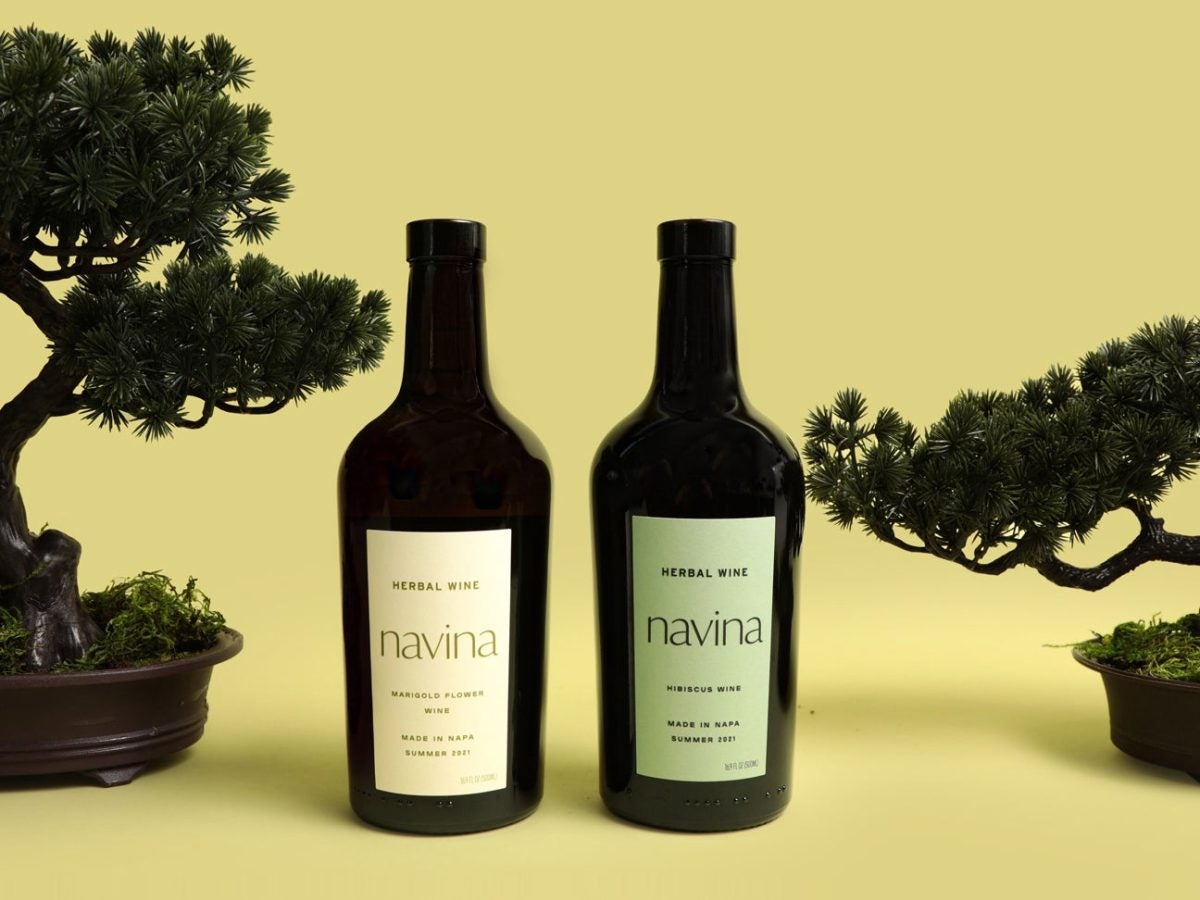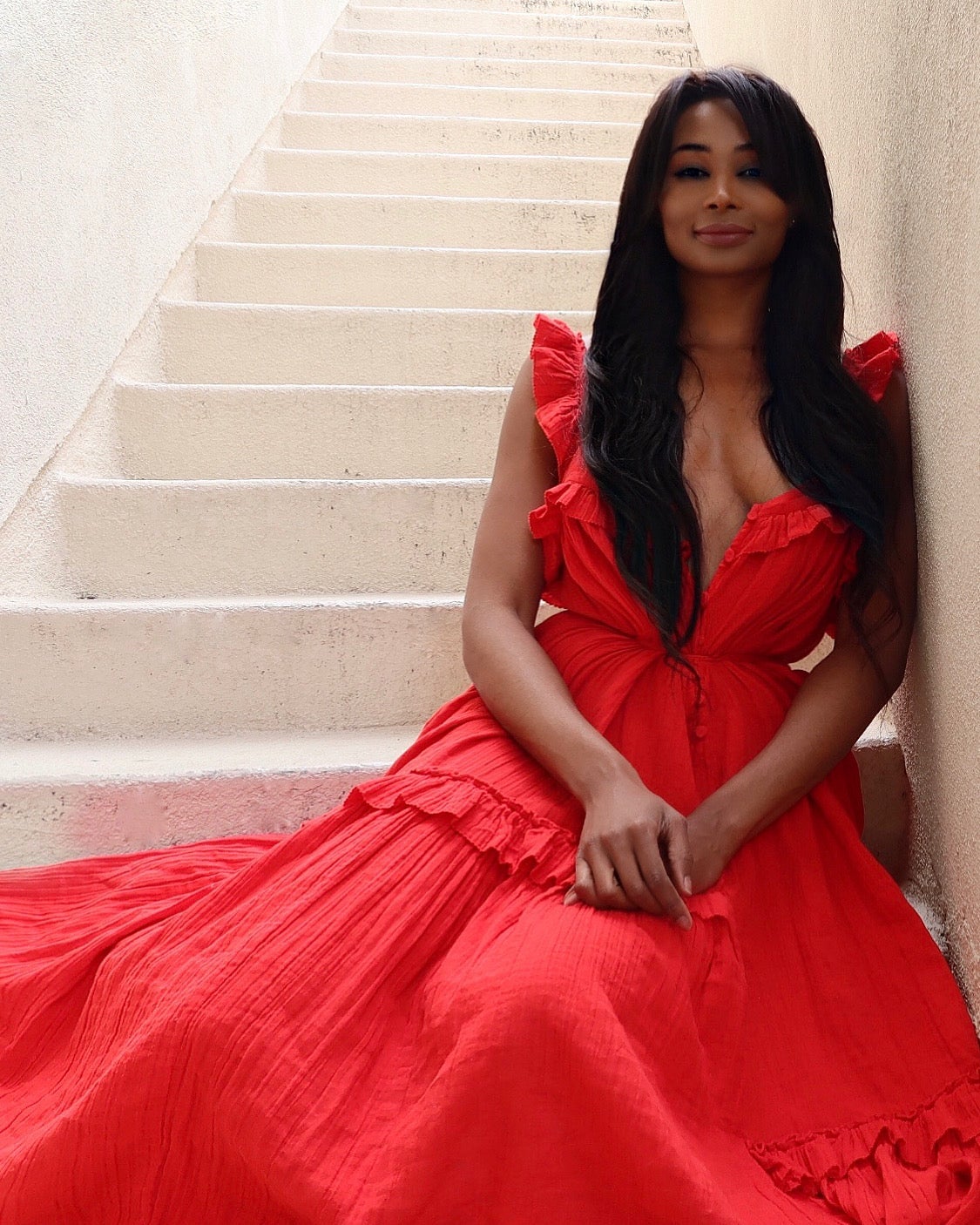
If Dry January wasn’t your thing but throwing back drinks high in sugar and other additives isn’t either, how about giving herbal wine a shot?
Nana Meriwether is one of the only Black women making moves in herbal wine with her brand, Navina (which is a combination of her name and “vin,” which is “wine” in Latin). The creation of the drink came from a time of exploration and healing in her life.
A few years ago she found out she was on the verge of a chronic illness and needed to change what she consumed. Starting in 2018, she decided to fully immerse herself in learning about wellness and would write about it weekly. Topics she delved into included yoga, meditation, tantra, the benefits of cutting down sugar and eventually, herbalism. The latter is the study of how plants and herbs heal, as before Western medicine, plants were used as medicine.
“Within it there are different traditions, like herbal wine, which is what I’m doing. But also, kombucha comes out of herbalism, herbal beers,” Meriwether tells ESSENCE. “But herbal wine is making wines out of herbs and botanicals. These things would be medicines that helped with anxiety or if you needed energy, among many other things.”
The more Meriwether learned about herbal wine on her wellness journey, she saw the role it could play in helping her stave off illness while still allowing her the opportunity to have a healthy drink socially. Herbs in these wines tend to have “anti-microbial and anti-cancerous properties” according to medical experts.
“The inspiration to bring herbal wine to market was that at the time I was looking to drink less alcohol and looking for healthier ways to embibe or more functional ways to have a drink,” Meriweather says. “Everything I eat has a purpose and is mindful now, and I wanted to extend that to my social life.”
She adds, “I’ve lowered the alcohol, I’ve lowered the sugar, the calories are low and also the sulphites. It’s very much a clean wine company.”

The bottle, in clever fashion, is even meant to look like a medicine bottle from an apothecary, also a nod to traditional herbalism. As for the taste, the results are fermented herbs and botanicals that resemble natural wines. For her two current offerings, Hibiscus and Marigold Flower, Meriweather describes them as having a very raw and clean taste with the herbs and botanicals bringing about floral characteristics.
“The Hibiscus wine, you’ll get notes of traditional wine in there but you’ll get a floral at the start,” she says. “When you open a bottle it reminds me of opening a perfume bottle because the florals immediately hit your nose. With our Marigold Flower wine, there’s characteristics of apples and pears. There’s a nod to traditional wines, but they’re going to have a floral characteristic as well.”
She adds, “I like to call these my weekday wines. They’re so low in all the things that it’s ok if I have a glass on Tuesday night — or two. I built something for those who really like to be social but have 8 a.m. Zooms or go to 7 a.m. yoga. I wanted to create a product that suited them.”
In addition to bringing consumers a healthier option that better fits into their lifestyle and goals, Meriweather also seeks to bring more women not only back to herbalism as a practice for their benefit, but into the creation of wines, as it’s an industry with less than one percent of Black women winemakers.
“It was women at the head of the household who were the winemakers. Water wasn’t safe to drink so women used to brew the family beer and family wine. It was a woman’s tradition,” she says. Navina is a nod to women to wake up to this tradition. “It’s a male-dominated thing, winemaking, so I want to bring women into the field.”
Navina, at $25 for a bottle or $50 for a sampler pack, is available on its site to ship to customers with its list of states growing constantly.




